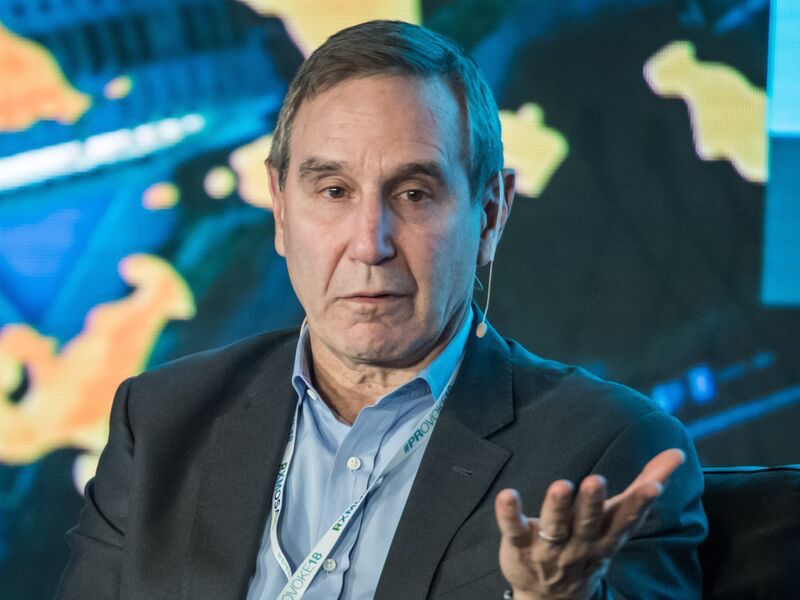Arun Sudhaman 21 Feb 2019 // 5:00PM GMT

NEW YORK — Edelman has reported 2018 revenue of $888.4m, representing a like-for-like revenue decline of 1.1% at the world's largest PR agency.
The results are likely to stun the market, even accounting for the iconic independent PR firm's slowdown over the past three years. Edelman grew 2.1% in 2017 and 1.7% in 2016, following several years of high single-digit or double-digit growth that helped propel the agency to the number one spot from 2011 onwards.
On a reported basis, Edelman's revenues declined by 0.6%. US revenues declined 0.7% on a like-for-like basis to $545.3m, with EMEA (-2.4% to $188.2m) and Asia-Pacific (-2.8% to $104.2m) both reporting significant contraction. Canada bucked the trend by growing 6.1% to $29.7m, while LatAm was up 0.4% to $20.8m.
Factoring in the DJE Group's other businesses, in particular Zeno, the overall holding group revenue held steady at $961.8m, a 0.1% like-for-like revenue drop.
Edelman's decline comes as some of its key PR rivals returned to growth in 2018, notably number two firm Weber Shandwick, which last week reported mid-single digit growth following a strong fourth quarter. Omnicom PR firms, meanwhile, grew 1.8% in 2018.
Edelman CEO Richard Edelman blamed "real pressure" on the firm's brand and digital business, pointing to the example of cutbacks in marketing budgets at major CPG players such as P&G. Edelman, for its part, counts Unilever as one of its biggest clients.
"It’s more reflective of what was experienced by the creative agencies over the past year," Edelman told the Holmes Report. "You can see the pressure on Publicis and WPP agencies as an example. Our digital business was definitely affected. Our brands business and foods business was affected. It's the P&G example [of reducing marketing spend]. You can start to see other companies restructuring marketing budgets."
In particular, Edelman noted that 2018 was "the second year in a row when digital moved backward." With clients continuing to take community management in-house, he said that his firm's digital business — worth upwards of $200m and now under new leadership in Tom Crampton — needs to focus more on such areas as consulting and paid media.
Meanwhile, the firm's corporate and public affairs practices were "really quite strong" said Edelman, outstripping the brand business in terms of revenue.
From a geographic perspective, Edelman pointed to the Tata loss in India, along with "disappointing" results from its acquisitions of Dabo in the Middle East and Ergo in Germany. But he noted there had been "good growth" from China, Japan, the UK and France, while "the US star operations were DC and Silicon Valley."
The slowdown at Edelman coincides with a broad attempt to restructure the agency's global talent, towards more specialist capabilities in response to the integration of earned and paid media. The agency has hired several high-profile names from the advertising world, including #LikeAGirl creator Judy John, along with more than 600 planners and creatives.
However, Edelman said that the firm's disappointing 2018 performance would not cause a rethink of this strategy. "One of the advantages of being a private family business is we’re going to double down here," he said. "Hiring Judy John is a signal we are damn serious about winning with earned creative. We are not trying to be an ad agency. I love the idea of us being different for our clients when they want to make a serious, substantive change."
In particular, he said that he remained optimistic about the next three years. "I really think that earned creative has reached a point of client belief," he said. "And earned creative is all based on trust. I think we need to keep making the point, one as Edelman, and two as an industry, about why what we do matters more than ever."
"We’re a family business," added Edelman. "We are in the midst of a transformation. I am completely committed to the strategy. I am completely committed to our people. We are investing in our people. We are going to compensate them well, we are going to give them opportunities and we are going to make this change. We are determined to reinvent the marketing services category. We can afford to take this risk."
At the same time, there have also been a string of high-profile departures — including global vice chair Michael Stewart, APACMEA vice chair Rupen Desai, global digital chair Kevin King and global brand chair Mark Renshaw — along with a move to recalibrate its global practice and sector leadership.
In response, Edelman pointed to several senior hires the firm had made over the past year and noted that it still retains three global practice chairs — brand, digital and reputation — and two global sector chairs, for healthcare and technology. "The rest of the them are more regional," he said, using food and financial services as examples.
While Edelman was notably acquisitive during its meteoric growth phase, the firm has not bought any agencies since it made three deals in 2015. That, said Edelman, will change over the next year. "You can count on [more acquisitions] happening."
But he denied that the firm is focusing more on margin as revenue growth has tapered off. "We’re reinvesting as we always have what money we earn into new capacity and things which help us grow. We’re not interested in any short-term financial strategy."
Ultimately, said Edelman, his firm needs to "compete more broadly." "The budgets that are available, we have to get a bigger share of," he admitted, pointing to the firm's role as a "primary" agency for Asics, Lego and Seaworld.



































.jpg)

















